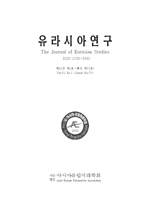- 영문명
- The Effects of Household Debt on Consumption and Economic Growth: Focusing on Macro Data
- 발행기관
- 아시아.유럽미래학회
- 저자명
- 전수민(Su-Min Jeon)
- 간행물 정보
- 『유라시아연구』제16권 제3호, 101~122쪽, 전체 22쪽
- 주제분류
- 사회과학 > 사회과학일반
- 파일형태
- 발행일자
- 2019.09.30
5,440원
구매일시로부터 72시간 이내에 다운로드 가능합니다.
이 학술논문 정보는 (주)교보문고와 각 발행기관 사이에 저작물 이용 계약이 체결된 것으로, 교보문고를 통해 제공되고 있습니다.

국문 초록
우리나라는 2017년부터 가계부채증가율이 둔화되고 있지만 여전히 경제성장률과 소비증가율을 상회하고 있어 가계부채 증가에 따른 우려가 커지고 있다. 특히, 세계경제의 불확실성 증대와 국내경기 부진이 지속되는 가운데 가계부채 증가를 통한 소비와 성장에 미치는 긍정적인 효과와 차입금상환부담에 따른 부정적인 효과가 상존하고 있어 현 시점에서 가계부채가 실물경제에 미치는 효과를 살펴보는 것은 중요하다 하겠다. 이에 본 연구는 가계부채와 소비, 성장간의 관계를 2003년 4/4분기부터 2019년 1/4분기까지 OLS 및 GMM 추정방법으로 실증분석하였다. 그 결과, 가계부채 증가율은 소비와 경제성장에 긍정적인 영향을 미치지만 가계부채/잠재GDP 비율은 소비와 성장에 부정적인 영향을 미치는 것으로 나타났다. 이는 가계부채의 증가가 유동성제약의 완화로 소비와 성장을 활성화시키지만 가계부채 누적에 따른 차입금상환부담이 가중되어 소비와 성장을 제약할 가능성이 높다는 것을 시사한다. 또한 최근 들어 가계부채증가율이 하락하고 있지만 국내경기 부진으로 소비와 성장에 대한 부정적 기여도가 한층 더 높아진 것도 확인하였다. 따라서 이와 관련하여 중장기적 관점에서 가계부채의 속도 조절과 소비와 경제성장을 활성화시킬 정책적 방안이 마련되어야 할 것이다.
영문 초록
The nation has seen its household debt growth rate fall since 2017 due to government efforts to increase household debt, but it is still above economic growth and consumption growth rates, raising interest in household debt. In particular, it would be important to look at the effects of household debt on the real economy at this point as the positive effects on consumption and growth through household debt growth and the burden of repayment of loans persist amid increasing uncertainties in the global economy and the continued slump in the domestic economy. Therefore, this study empirically analyzed the relationship between household debt, consumption and growth using the OLS method and GMM method from the fourth quarter of 2003 to the first quarter of 2019. The results showed that while household debt growth has a positive impact on consumption and economic growth, the ratio of household debt/potential GDP has a negative impact on consumption and growth. This suggests that the rise in household debt will boost consumption and growth with eased liquidity constraints, but the burden of repayment of borrowing from accumulated household debt is likely to increase, constraining consumption and growth. It also confirmed that despite the recent decline in household debt growth, the sluggish domestic economy has led to a further rise in negative contributions to consumption and growth. Thus, from a mid- to long-term perspective, policy measures should be devised to control the pace of household debt and stimulate consumption and economic growth.
목차
Ⅰ. 서 론
Ⅱ. 가계부채 현황 및 선행연구 고찰
Ⅲ. 분석모형과 자료
Ⅳ. 실증분석결과
Ⅴ. 결 론
참고문헌
키워드
해당간행물 수록 논문
- 남북한 문화예술교육방법의 비교: 정부간행 잡지 기사를 중심으로
- The Relationship between Labor Union Strikes and Earnings Management from Korean Evidence
- Power Distance Orientation, and LMX Quality on Workplace Voice in China
- Research on Government Social Capital Management of Chinese Cultural Enterprise: Taking the development history of Rongbaozhai as an example
- 재정패널 자료를 활용한 한국의 개인기부 규모 추정
- 순위반응모형을 이용한 주택연금의 잠재시장 규모 추정
- 중국 하이테크산업의 R&D투자 효율성 및 생산성 분석
- 가계부채가 가계소비와 경제성장에 미치는 영향: 거시자료를 중심으로
참고문헌
관련논문
사회과학 > 사회과학일반분야 BEST
- AI와 디지털 문화 산업의 결합에서 저작권 및 윤리적 규범 준수의 필요성 연구
- 인공지능(AI)과 윤리
- 종합병원 간호사의 환자안전문화인식과 조직의사소통만족이 안전간호활동에 미치는 영향
사회과학 > 사회과학일반분야 NEW
- 간호대학생의 도덕적 민감성과 생명의료윤리의식이 간호전문직관에 미치는 영향
- X세대의 심리사회적 자원 잠재프로파일이 생활만족도에 미치는 영향 - 노후준비의 조절효과를 중심으로
- 가상 시뮬레이션(vSim)의 효과 - 간호대학생의 자기주도학습에 미치는 영향
최근 이용한 논문
교보eBook 첫 방문을 환영 합니다!

신규가입 혜택 지급이 완료 되었습니다.
바로 사용 가능한 교보e캐시 1,000원 (유효기간 7일)
지금 바로 교보eBook의 다양한 콘텐츠를 이용해 보세요!



